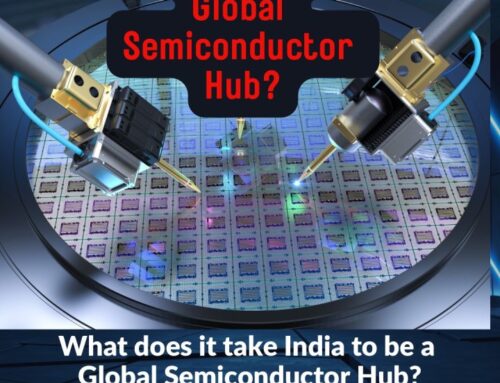The New Year begins with an influx of technophiles at the most prominent Consumer Electronic Show (CES) is the global stage for introducing the next-generation, cutting-edge technologies and innovations to the marketplace. This year’s highlight of the event is the trends in Emerging key technologies which will provide you with the insights and to make sense of the incredible, mesmerising chaos of the CES-ar Salad 2019:
1. Artificial Intelligence (AI):
AI will be running the world. AI was the omnipresent trend at CES 2019. The AI-focussed chips and processors was a game-changer. Organisations used kits to embed AI in their products to enhance the user experience. TVs are using AI to change the picture settings based on the lights and the viewers’ location in the room; Cameras are using AI to monitor the quality of the picture, and the potential impact is that the ‘adjusting settings’ would rather seem old-fashioned. Digital Assistants are getting into many vessels. Many of them now have Google Assistant or Amazon Alexa. The proliferation of AI, in turn, has started to transform voice into a normal way of engaging with our devices. Baking AI into everything solves the conundrum that lies at the heart of the modern technology, threading its way from your smartphone to dishwasher to your refrigerator. All you need to be is smart to use your smartphone. The future of all the products will be developed using intelligent technology – AI-powered cameras, security, memory chips, televisions, mattresses, you name it.
2. 5G:
It is 5G again, and this time it is for real. The past few years has been a period for pilot, trials and infrastructure developments; there are displays of fixed wireless broadband systems for taking the infrastructure to remote areas that fibre can’t reach. With substantially faster speeds and with lower latency times, the next-gen networking technology will interconnect everything from computers to cars and smart homes. 5G will transform everything by being instrumental in making everything connected.
However, the advancements in 2019 will have pilot 5G programs by every major carrier. Some of them already do, which means, things like immersive virtual reality worlds that don’t suffer disorienting lags from slow networks. It simply refers to being able to visit the best doctor anywhere in the world or maybe even undergoing robotic surgery via telepresence technology. It also means, faster phones, lighting speed networks, downloads of movies in the blink of an eye. Samsung, Qualcomm, and other giants leading the charge in 5G announced 5G enabled gadgets and smartphones. 5G is not a hype anymore but definitely a hope of transformation to happen soon. 5G in 2019 is expected to be limited to a handful of large cities, with national rollout not picking up speed until 2020.
3. Self-Driving Cars and Car Technology:
CES has showcased plenty of “level two” self-driving vehicles. This means partial autonomy – adaptive lane keeping, or parking assistance. CES 2019 was all about, “level three” self-driving vehicles – when the car is in complete control for at least part of the time. Self-driving car fleets are taking to the streets this year and pilots are underway in USA, Singapore, and many other countries in the world. Companies are making things like solid-state Lidar sensors, 5G chips and gigabit wiring harnessed to ferry data from high-resolution radar to the real-time Linux operating systems and A.I. programs that make all the decisions are pitching the brains of cars to carmakers and the world at large.
The BMW X7 interface is ideal for off-roading. Audi’s XR lets you go for a virtual ride while in the backseat. Honda’s Dream Drive in-vehicle experience aims to gamify travel. Hyundai’s ‘walking car’ could be the ambulance of the future. Byton confirms M-Byte car will be available in 2019 with AI, 5G and a 48-inch display. The new in-vehicle technologies such as Future of Mobility, V2X Communications and Electric Vehicles will be the future for Autonomous vehicles. The AI will underscore the connectivity of many smart products and services including Autonomous Vehicles which will become an integral part of the connected smart home ecosystem. The new Internet of Things is the Intelligent of Things.
4. Computing World:
Chip Wars 2019 – After a year chip industry was hit with twin hacking attacks of Spectre and Meltdown, semiconductor manufacturers unveiled new microprocessors designed to avoid the security breach and increase performance. Even though the chip industry’s real growth market is for servers used in the Cloud Computing Data Centers, the announcements focused mainly on consumer products for Laptops, PCs, and SmartPhones.
- Advanced Micro Devices (AMD) 7nm Ryzen 3rd Generation processors of its high-performance consumer PCs line of chips will come mid-2019. AMD claims the Chromebooks from Acer and HP will be the first to use the Excavator chips and will outperform Intel’s low-cost rivals, the Celeron N3350 and Pentium N4200. AMD also debuts the Radeon VII graphics card the latest and most powerful consumer GPU to combat Nvidia RTX 2080.
- Intel finally announces its first 10nm processors for the ninth generation of its Core lineup of microprocessors. Ice Lake, the new line works better for Artificial Intelligence, Deep Learning, and has incorporated faster WiFi technology called WiFi 6.
- Qualcomm the leading mobile chipmaker showed how the latest phones arriving this year would use its Snapdragon 855 microprocessor and X50 cellular modem to connect to the upcoming super-fast 5G wireless networks. Qualcomm also debuted a partnership with Ford to use its chipsets designed for cars knowns as “Cellular-Vehicle to Everything” or C-VX2 in short.
- Nvidia announces the GeForce RTX 2060 graphics card cost of $350 and provides two times the performance and will be capable of editing 8K videos, the most data-packed and high-resolution technology in use today. Nvidia finally bringing its latest Turing chip designs to the mainstream consumer gaming market.
- Alexa is coming to Razer gaming peripherals. New Netgear Orbi packs the latest Wi-Fi tech for super-fast home internet. HP leads 2019 monitor lineup with Quantum Dot Pavilion 27
5. Smart Voice Assistants or Speakers:
The voice-controlled intelligent assistants such as Amazon Alexa or Echo, Google Home, or Apple HomePod are part of the ‘meteoric growth’ and is increasing the ubiquity of voice; which is the consumers using their voices to control the device, conduct online searches, and many more activities. The Voice/AI are Digital Assistants that are going into everything – Devices, Cars, and Appliances. The support for Digital Assistants has become table stakes – Brands, Services, and Commerce. The Voice is quickly becoming the ‘go to’ interface impacting majorly on the Smart Home, A/V, and more. Therefore, there are significantly growing users engaging the voice assistants that power various devices. For, e.g., Amazon’s Alexa is on a phenomenally growing number of platforms, especially as the conversational capabilities of these voice assistants continue to evolve.
6. Everything Else:
Besides, the above trends CES for the first time the Tech space for Women finally exploded with growth in products meant for women, designed by women such as smartphone controlled skin care device and AI-powered beauty apps and other wearables. Another technology which has seen interesting evolution is the Virtual Reality (VR) – Its market permeation didn’t witness much progress, but the potential use cases for VR and AR has continued to evolve and diversify as did the hardware development to power the AR and VR experiences. 8K and Foldable screens went mainstream. The things that fold won’t be limited to cellphones but is expected to see tablets and laptops that incorporate the new display technology. A number of companies launched 8K TVs with Google Assistant and Alexa baked into almost every TV that was launched.
Last but not the least, Apple doesn’t participate in the world’s biggest trade show but made its presence felt at CES 2019 for the first time with a massive billboard highlighting iPhone’s Privacy features. “What happens on your iPhone stays on your iPhone,” the massive letters read. Apple sees Privacy as a major differentiator from its Competitors. The ad happened to appear next to a monorail emblazoned with Google ads.
To summarise, We have spent the last thirty years connecting people and will be spending the next thirty years connecting Things. All of these trends are going to be connected by a core foundation, and that is ‘Data.’ As we evolve through the connected age, we are entering the era of Data, where every business decision is backed and supported by Data. The evolution has been from Digital Era to Connected Era and to the Era of Data. Everywhere you go, the data is going to be the common denominator.




